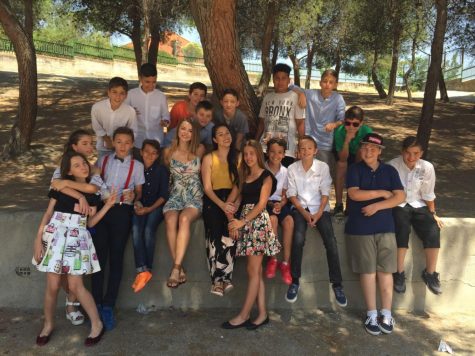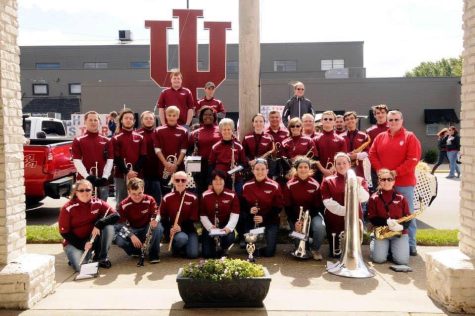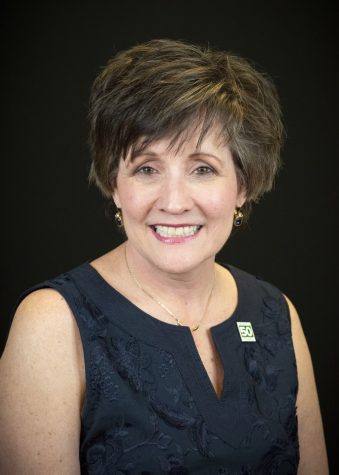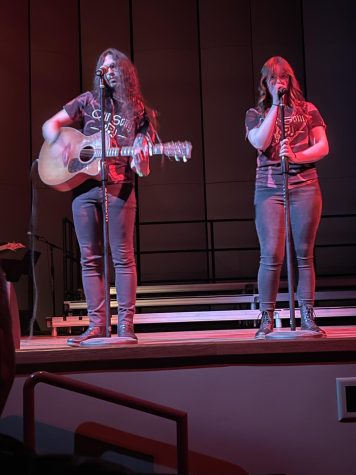Language and Cultural Assistant in Spain
Playa de la Arnía in Santander (Cantabria) Spain. One of the sixteen cities Amelia Robertson was able to visit while in Spain. Photo courtesy of Amelia Robertson.
September 17, 2017
Many students may be familiar with study abroad programs, but they may not be aware that there are other programs to travel and learn than just studying abroad. Students also have the opportunity to explore and gain life skills by becoming a Language and Cultural Assistant in Spain.
The Language and Culture Assistants program provides an eligible person with a visa, health insurance, paycheck and the opportunity to live in another country. The program is coordinated by the Spanish Ministry of Education and collaborates with Spanish Comunidades Autónomas (regions) and the Education Offices of the Embassies of Spain in the United States and Canada. It gives someone the opportunity to visit another country and become acquainted with the Spanish education system, teachers and students, while sharing aspects of one’s own language and culture.
To be eligible you need to be a junior in college or have a bachelor’s degree. Requirements of the program include a weekly schedule of teaching 12 to 16 hours, hosting conversation lessons, class presentations and participating in extracurricular activities.

IU Bloomington graduate, Amelia Robertson, has participated in the program for the past two years. Robertson said, “I decided to apply for the program because I had pretty much always wanted to live abroad and teaching English with this program is a super easy way to get a visa to live in Spain.”
The best part of the program for Robertson was living in Spain. She loves kids, so working in an elementary school was enjoyable. However, she says even if teaching isn’t your ideal job, you generally only work 16 hour work weeks, so you could benefit from living in Spain, even if it’s not your ideal career.
Haley Waiz, graduate from IU Southeast with a bachelor’s degree in mathematics, also participated in the program for two years.
“I think the program was very beneficial because I was able to experience a different language, people and culture,” said Waiz. “My favorite part about the program was the fact that I wasn’t totally responsible to teach the lessons, I was only there to help the students gain confidence in speaking. I loved it so much because my only job was to talk. I was able to gain awesome relationships with the students, considering I wasn’t the teacher grading them.”
Both Indiana University graduates were happy with the experience and the opportunity they were given to learn a valuable language, since Spanish is the third most spoken language in the world according to Rocket Languages research.
Waiz had no previous experience with the Spanish language. She moved to Spain starting completely from scratch. During the day she taught English, met with a private tutor in Spanish once a week in the evening, and would also mingle with the natives to practice. Waiz said, “I’m not fluent, but I can still talk your ear off.”
Robertson had taken Spanish previous to her time in Spain, while in high school. She believed she had a good grasp on the language until she arrived in Spain.
“I was pretty much lost after saying hello. It still takes effort, but there’s nothing like living in a foreign country to make you learn a language,” said Robertson.
Amy Zink, senior lecturer in the Spanish department at IU Southeast, believes this program sounds beneficial. Zink is not familiar with the Language and Culture Assistants program, but said, “it’s an excellent learning opportunity any time you are able to work and live in a different community or culture. It helps build life skills and learn not only your strengths, but also weaknesses, which sometimes is just as important.”
While it may cost more, study abroad also carries similar benefits to the assistant program.
“Study abroad has more of a safety net, while the teaching program is better suited for a very independent person,” Zink said.

Study abroad counts for college credit and learning Spanish can be required because some classes are taught in Spanish depending on the program. The assistant program does not count for college credit and the student would need to be more self-motivated to learn the language by attending a Spanish class, talking with natives and doing intercambios, which is a meeting where you spend half the time speaking in Spanish and half the time speaking in English.
Although the program does not count as an internship, students who choose to do the assistant program before graduating could take online classes through a branch of Indiana University while living in Spain. Students can work toward their degrees while gaining the life skills living abroad.
The Assistant program also offers the opportunity to travel around Europe. Short work weeks afford students time for weekend trips to Rome, Dublin, Greece and many other cities. Students can also utilize budget airlines, such as Ryanair to travel to these cities.
“The first year I traveled as much as I could,” Waiz said. “The second year I spent most of the year in Madrid just enjoying the city.”
Robertson visited five countries outside of Spain, and sixteen cities in the country while Waiz visited nine countries outside of Spain, and over twenty cities within the country.
“I would definitely recommend the program to anyone,” Waiz said. “I recommend anyone to work in another country to get the real experience of a different culture. It was one of the greatest things I’ve done for myself.”
The application process for Assistant program begins January 2018 to April 2018. More information, including application details and testimonials, is available at the program’s website.












